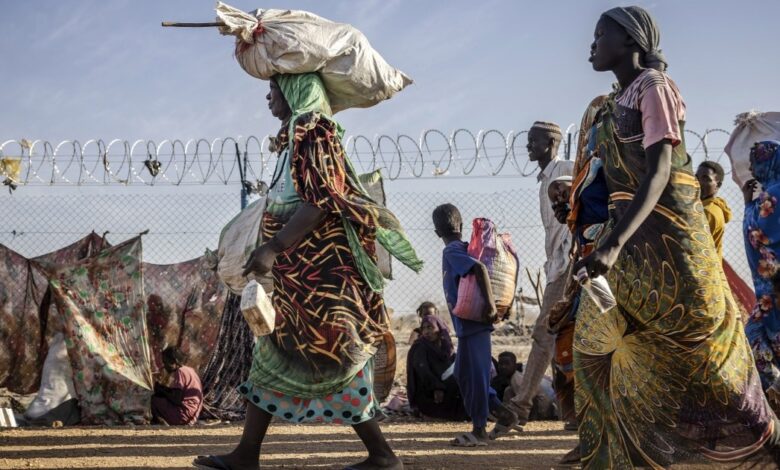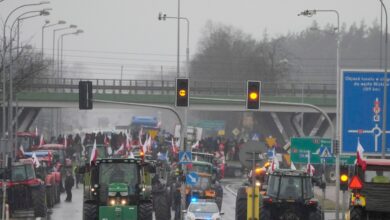UN official warns of possible war crimes, rape as a weapon in Sudan

The United Nations human rights chief has said that the apparent deliberate denial of safe access for humanitarian agencies within war-torn Sudan could amount to a war crime.
“Sudan has become a living nightmare. Almost half of the population – 25 million people – are in urgent need of food and medical aid. Some 80 percent of hospitals have been put out of service,” UN High Commissioner for Human Rights, Volker Turk, said on Friday.
The Sudan crisis “continues to be marked by an insidious disregard for human life”, he told the UN Human Rights Council in Geneva, saying that many of the violations of international humanitarian law committed by the warring parties “may amount to war crimes, or other atrocity crimes”.
The paramilitary Rapid Support Forces (RSF) has been fighting Sudan’s army for control of the country since April last year in a war that has killed thousands, displaced millions inside and outside the country, and sparked warnings of famine.
Both sides “have killed thousands, seemingly without remorse”, Turk said, noting the use of heavy artillery, even in densely populated urban areas.
He said in 11 months, at least 14,600 people had been killed and 26,000 others injured. “Actual figures are undoubtedly much higher.”
Noting the implications of the apparent denial of aid, he called on the warring parties to “meet their legal obligations by opening humanitarian corridors without delay, before more lives are lost”.
Aid supplies have been looted and humanitarian workers attacked, while international agencies and NGOs have complained about bureaucratic obstacles to get into the army-controlled hub of Port Sudan to get humanitarian assistance into the country.
Last month, the UN urged countries not to forget about civilians, appealing for $4.1bn to meet their humanitarian needs and support the more than 1.5 million people who have fled to neighbouring countries.
“With more than eight million forced to flee within Sudan and to neighbouring countries, this crisis is upending the country and profoundly threatening peace, security and humanitarian conditions throughout the entire region,” Turk said.
Rape as a weapon of war
The rights chief also highlighted another weapon in Sudan’s continuing war.
“Sexual violence as a weapon of war, including rape, has been a defining – and despicable – characteristic of this crisis since the beginning,” he said.
Since last April, his team has documented 60 incidents of conflict-related sexual violence, involving at least 120 victims across the country, the vast majority women and girls, he said but added that “these figures are sadly a vast underrepresentation of the reality.”
“Men in RSF uniform and armed men affiliated with the RSF, were reported to be responsible for 81 percent of the documented incidents,” Turk said.
According to a report to the UN Security Council, obtained by The Associated Press on Thursday, sexual violence by the RSF and its allied militia was widespread.
The panel of experts said that, according to reliable sources from Geneina, a city in west Darfur, women and girls as young as 14 were raped by RSF elements in a UN World Food Programme storage facility that the paramilitary force controlled, in their homes, or when returning home to collect belongings after being displaced by the violence. Additionally, 16 girls were reportedly kidnapped by RSF soldiers and raped in an RSF house.
“Racial slurs toward the Masalit and non-Arab community formed part of the attacks,” the panel said.
“Neighbourhoods and homes were continuously attacked, looted, burned and destroyed,” especially those where Masalit and other African communities lived, and their people were harassed, assaulted, sexually abused, and at times, executed.
The panel stressed that disproportionate and indiscriminate attacks on civilians – including torture, rape and killing, as well as destruction of critical civilian infrastructure – constitute war crimes under the 1949 Geneva Conventions.
“Perpetrators of the horrific human rights violations and abuses must be held to account, without delay,” Turk said on Friday.
“And without delay, the international community must refocus its attention on this deplorable crisis before it descends even further into chaos. The future of the people of Sudan depends on it.”



